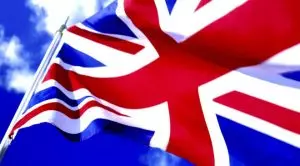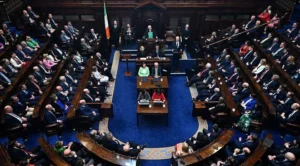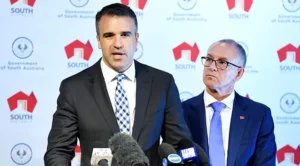 It has been an event-filled year for the UK gambling industry as the local market has been growing to become among the largest ones. A new gambling giant was formed after months of trying to overcome regulatory obstacles, fears of fixed-odds betting terminals crackdown has been shrouding retail businesses all over the nation for months now, and a major gambling operator has been fighting demons that have been hitting its profitability severely.
It has been an event-filled year for the UK gambling industry as the local market has been growing to become among the largest ones. A new gambling giant was formed after months of trying to overcome regulatory obstacles, fears of fixed-odds betting terminals crackdown has been shrouding retail businesses all over the nation for months now, and a major gambling operator has been fighting demons that have been hitting its profitability severely.
These are few of the top stories to have been covered broadly over the past year. More about them and several other key happenings within the country’s gambling industry could be read in the paragraphs below.
FOBTs Clampdown
Word has leaked out this summer that the Government would be looking to adopt more austere measures in regard to the way fixed-odds betting terminals are managed within betting shops around the nation. Fears that a crackdown on the machines would indeed take place intensified in the autumn when officials announced the beginning of their triennial review of the gambling industry, noting that particular attention would be paid to FOBTs.
The controversial devices have gathered considerable opposition from Government representatives and responsible gambling organisations over the years and it is believed that all that opposition will finally effect certain changes in the ways of the industry.
According to many, first amendments to regulations on FOBTs will be implemented in the spring of 2017. The devices, which now allow players to bet up to £100 every 20 seconds, may see maximum stakes reduces significantly. This will inflict a serious blow on the retail operations of UK’s major gambling operators.
Ladbrokes Coral Merger
Ladbrokes and Coral announced their intention to merge operations back in the summer of 2015. However, it took the two companies almost a year and a half to finalise the more than £2-billion-worth deal. Multiple obstacles delayed the merger’s closure, the most serious of which being posed by the Competition and Markets Authority (CMA).
The non-ministerial government department ordered that the two operators sell a certain number of their betting shops across the UK and Ireland in order to be allowed to proceed with their merger. The CMA argued that the move was a necessary one so as for higher concentration of betting shops of the same brand to be avoided on British high streets.
Eventually, the two companies sold 360 retail operations to rivals Stan James, Betfred, and Bet21. Content with that turn of events, the CMA nodded the Ladbrokes Coral merger deal in November.
William Hill’s Failed Deals
As some of its arch-rivals combined their operations, William Hill engaged in merger and acquisition talks this year but those did not result in any deal. This summer, the major gambling operator rejected two takeover offers from The Rank Group and 888 Holdings. Its board explained that it had decided to walk out of the proposed three-way deal as it had not wanted to start an endeavour that was “based on risk, debt, and hope”.
Shortly after, William Hill’s name was involved in another multi-billion-pound deal, a merger one this time. It has become known that the gambling operator was involved in merger talks with Canadian giant Amaya, owner of PokerStars and other online gambling operations. The proposed deal was frowned upon by major William Hill investors and merger talks were eventually called off.
It is believed that William Hill’s trials to find a suitable partner and to possibly and hopefully improve its rather unstable condition are far from over and that more will be heard of the company in terms of potential merger and acquisition deals in 2017.
iGaming Growth
Online gaming has officially become UK’s most profitable gambling sector. Gross gaming yield from this type of gambling offering amounted to £4.5 billion for the period between April 2015 and March 2016, figures reported by the Gambling Commission showed. iGaming accounted for 33% of the total gross gaming yield generated during the period in review.
Online casino games contributed £2.6 billion to the whole. Slot games alone generated the amount of £1.8 billion over the reported period. Gross gaming yield from online sports betting operations totalled £1.6 billion. Betting exchanges contributed £152 million; pool betting generated £26 million; and gross gaming yield from online bingo options amounted to £153 million.
Overall, the UK gambling industry reported gross gaming yield of £13.6 billion for the above-mentioned period.
Heavy TV Advertising Investment
A report commissioned by The Guardian and compiled by measurement company Nielsen showed that UK gambling operators have spent almost £460 million on TV advertising campaigns since 2012. In other words, television has become an important and widely preferred channel for brand popularization.
Online and land-based casino, sports betting, and bingo operators invested the total amount of £118.5 million in TV advertising in 2015, according to Nielsen’s report. The aforementioned figure reflected a substantial increase from 2012 when the amount of £81.2 million was spent.
However, TV advertising of gambling products and services may face certain limitations from 2017 as responsible gambling organizations have been calling actively for changes. Currently, gambling TV ads may appear on screens after 9 pm or during major sports events. Word has leaked out that a full daytime ban on such ads may be in the making.
- Author


